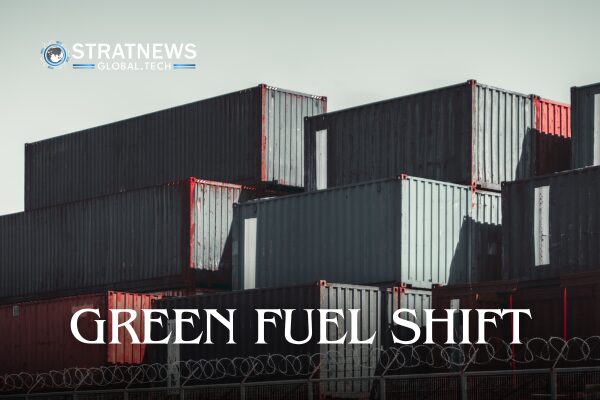Shipping’s Shift to Alternative Fuels Set to Accelerate After 2030
The global shipping industry is expected to ramp up its use of alternative fuels significantly after 2030, driven by stricter emissions rules. While the transition remains uneven today due to trade and political uncertainty, industry leaders at the APPEC conference in Singapore on Tuesday said the long-term outlook is more promising.
Over the next five years, adoption of low-carbon fuels is likely to be cautious. However, the decade between 2030 and 2040 is forecast to bring a substantial increase in usage.
“This is where we’re going to see the real kind of volume shift to low carbon fuels,” said Emma Mazhari, CEO of Maersk Oil Trading. She pointed to tightening regulations like the European Union’s emissions trading scheme and maritime fuel standards as key drivers.
Dual-Fuel Ships Take Centre Stage
In anticipation of coming regulations, shipping giant Maersk is no longer investing in single-fuel ships. “If we invest in new assets now, they have to be dual-fuel,” said Mazhari. This approach ensures flexibility and allows long-term return on investment as the fuel landscape evolves.
Mazhari also noted that low-carbon fuel availability is already improving in European ports. “There’s definitely a lot of change coming,” she added.
Near-Term Focus on LNG and Methanol
Takeshi Hashimoto, CEO of Japan’s Mitsui O.S.K. Lines (MOL), said the next five to ten years will focus on using proven technologies like liquefied natural gas (LNG) and methanol. MOL is also exploring wind-assisted propulsion systems as a complementary solution to reduce emissions.
Hashimoto described the decarbonisation journey as “stop and go,” but said alternative marine fuels such as green ammonia, biomethane, and green methanol would be essential over the long term.
Decarbonisation Remains a Strategic Priority
Despite global instability, shipping executives agree that decarbonisation is a non-negotiable goal. Amitabh Panda, managing director at Tata NYK Shipping, stressed that “decarbonisation as a necessity and a strategy for shipowners will be there despite whatever we are hearing from the White House.”
Tata NYK Shipping is a joint venture between India’s Tata Steel and Japan’s NYK Line. While Panda acknowledged that geopolitical uncertainty makes investment planning more complex, he said the long-term strategy remains unchanged.
“We are not very sure when and how much to invest, so the capital allocation becomes an issue,” he said.
The shipping industry continues to explore low-carbon fuels as part of global efforts to meet emissions reduction targets set by the International Maritime Organization (IMO).
with inputs from Reuters


